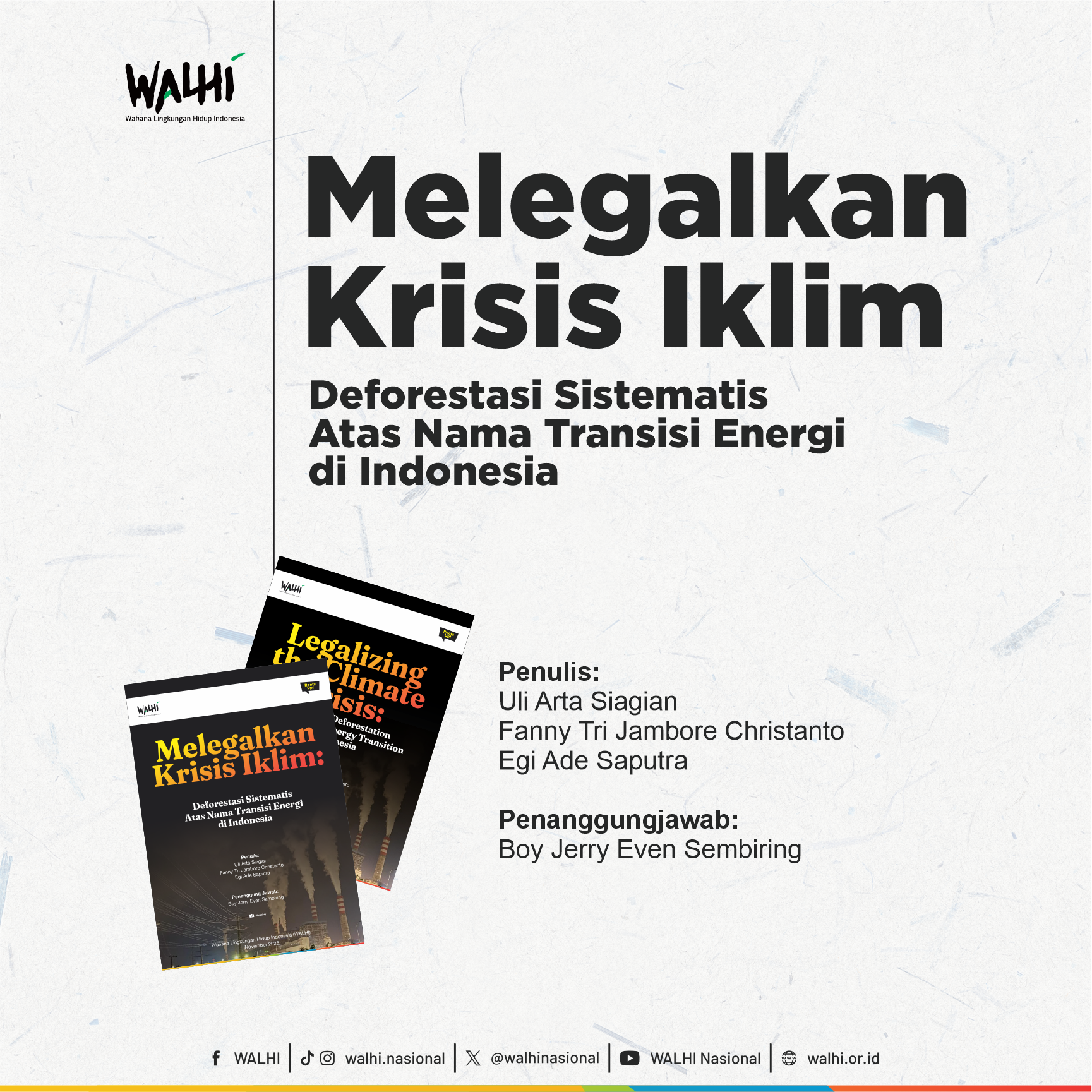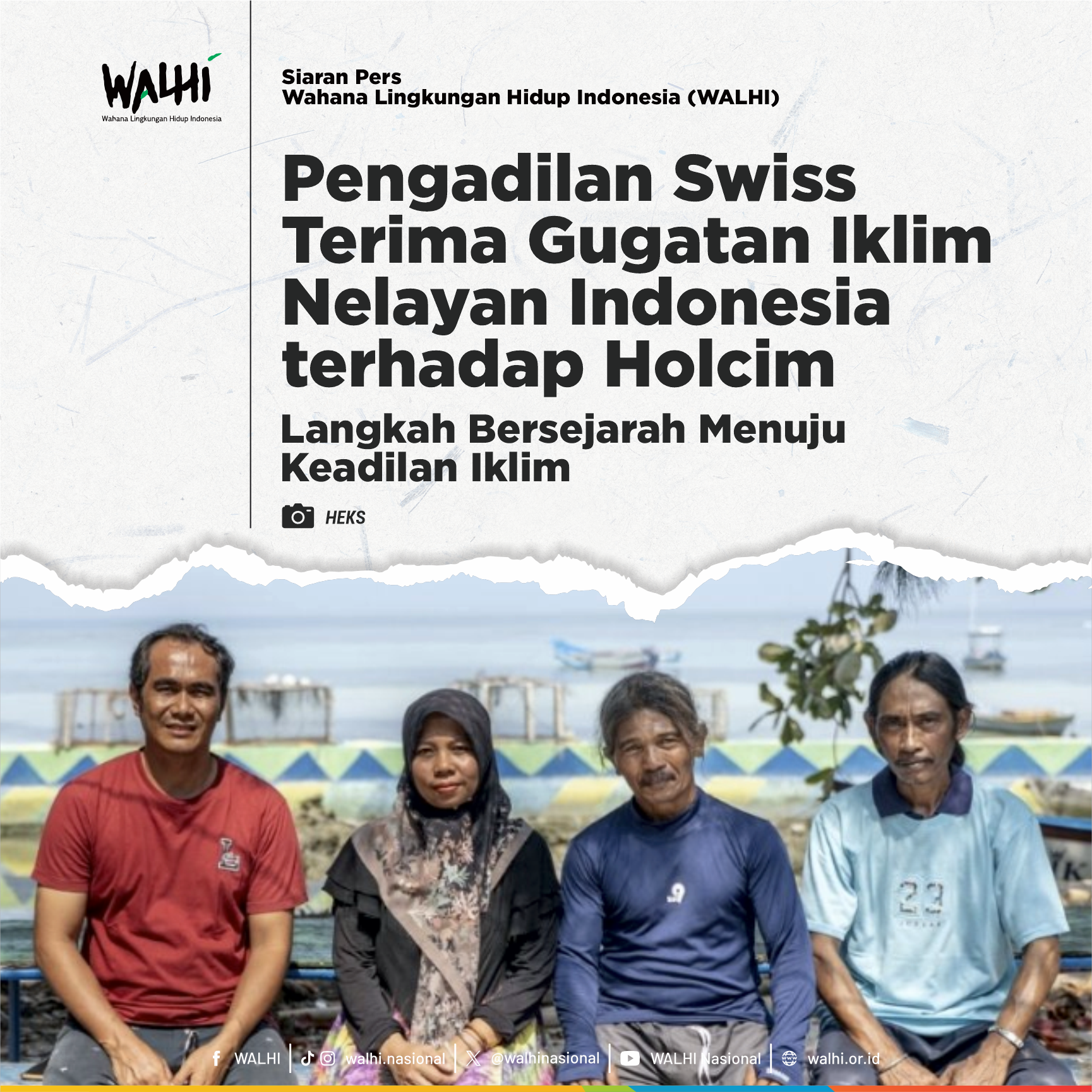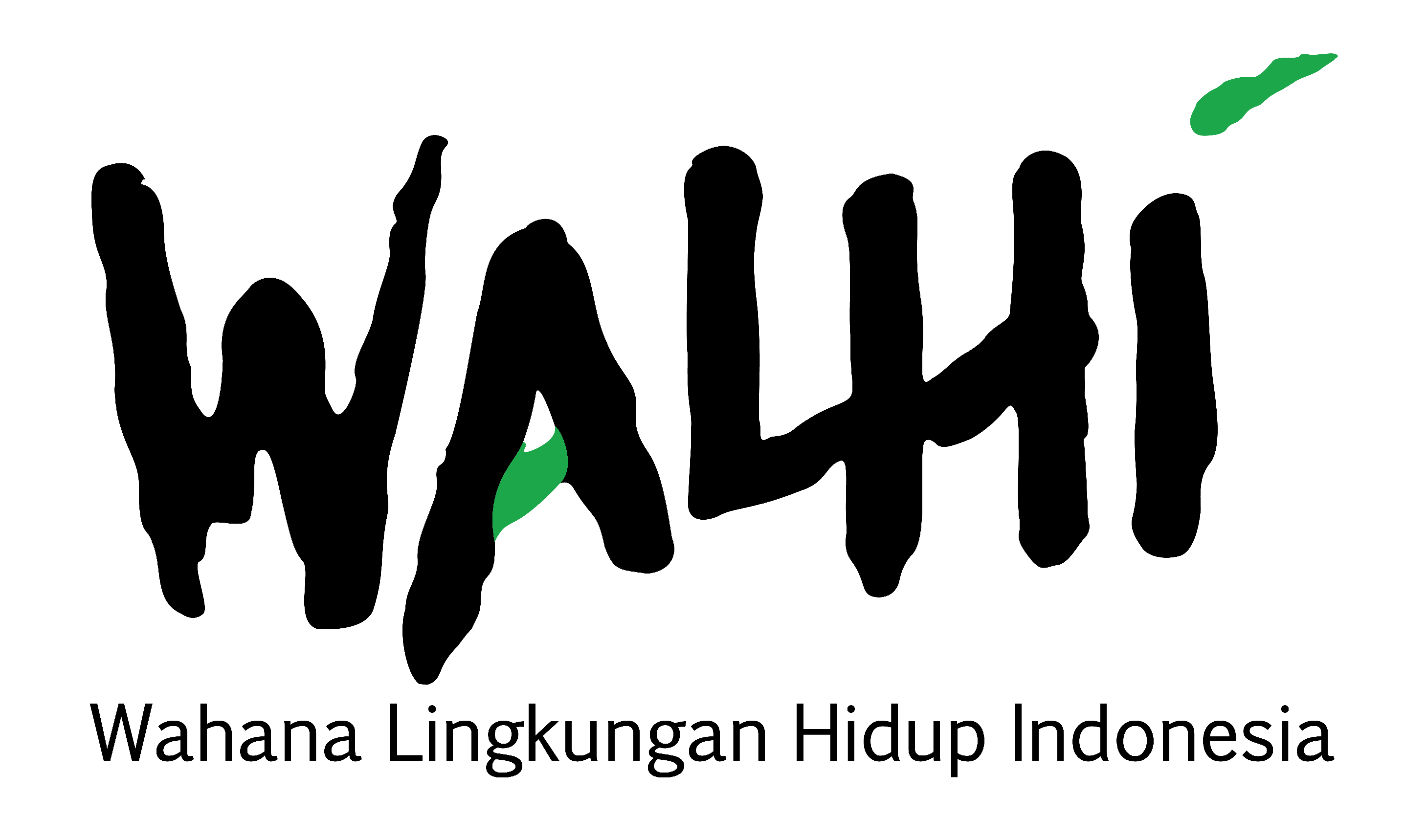Jakarta (24 October 2019), following President-Vice President inauguration for the next five years, Jokowi and Ma’ruf Amin inaugurate Cabinet of Ministers which will support the course of the government in the next five years.
WahanaLingkunganHidup Indonesia (WALHI) predicts that the agenda of saving the environment will be increasingly dark in the second round of the Jokowi’s administration. This is marked by the absence of the state inproviding assurance of environment protection and fulfillment of human rights. The absence of this commitment was seen clearly in first state speech delivered by President Jokowi, the future of living environment will again just be “sweetener” or complement package named investment and development. In the five priority agenda which delivered in his first speech during the inauguration indicates no fundamental correlation against economic paradigm and Indonesia development in the next five years. Certainly this matter contribute to crisis and fails to meet his Nawacita promises.
NurHidayati, Director Executive of WALHI National express that “since beginning President has been reminded by civil society, that as a leader, he has to be bold to leave the oligarchy trap, which eventually will hostage and obscure his Nawacita promises.” Unfortunately, the President elected by people, increasingly ignores the voice of the people and traps himself in the power of a stronger oligarchy in the preparation of his cabinets.
The impact of the oligarchy strengthening in Indonesia affects the determination of nomenclature and names of his cabinet which more nuance to maintain “political stability”, rather than concern to people and environment issues. Therefore the nomenclature formulation fails to response structural issues on living environment. Arrangement of cabinet nomenclature on living environment and natural resources/agrarian has no any difference to the first Jokowi government. The selection of cabinet nomenclature of Jokowi-Ma’ruf Amin government which remains the same demonstrate that they have no willing to solve one of environment issue that is sectionalism character which cause environment and natural resources disruption.
Another thing is that the people’s representative in parliament are also colored by oligarchs loaded with interest to maintain political and economy power. Then it can be ascertained that the oversight function of the government will not work and the legislative agenda will be ensured to facilitate heavily the interest of investment.
Apart of oligarchy which growing stronger on one side, democratic space for the people and civil society element is shrinking. The oligarchy even closed the space for the birth of new political forces that could carry environment and populist agenda with the current political system. We also witness how #ReformasidiKorupsi by power and security approachesconstantly conducted to face people voiceswhich criticize government and express their rights. Criminalization and violence acts towards the people that fight for their living space and rights also regularly happens.
WALHI envisionthat security approach as a state’s control to its peoples will be forceful in the next five years. The agenda of protection and saving the environment and natural resource will be difficult to happen, if Jokowi government locked democratic space for people as good governance prerequisite. (End).
Notes for editor:
- Some of the unfinished works, there are: (1) Government and DPR low commitment in implementing TAP MPR IX/2001 mandate on Agrarian Reform and Natural Resources; (2) legislation process drafting which is not participative and does not favor ecological and social justice; (3) closure of public information related to the management of environment and natural resources; (4) stagnation in resolving agrarian conflicts and increasing conflict escalation in various regions in Indonesia; (5) the slow implementation of genuine agrarian reform and environmental protection
- Massive forest and land fires occurred in 2019, illustrate that the natural resources management, particularly in the forestry and peat sector has not yet occurred, and the government is not serious in dealing with the climate crisis. KLHK mention that fires area since January – September 2019 reached to 857,756 or equivalent to 13 times the area of DKI Jakarta Province. Based on WALHI database, emissions from fires and peat alone, reach to 209,8 million tons of CO2 in September 2019.
- In the first Jokowi government, in the speech he urge all peoples to no longer turn their back on sea. However, Jokowi is getting further turn his back on sea. Development carried out by Jokowi government remains terrestrial bias. In 2018, the government targets 34 provinces would have PERDA RZWP3K in order to optimize the sea as Indonesia’s frontline. Unfortunately, in the name of acceleration to accomplish the RZWP3K in all provinces, there are still those who ignore or even consider KajianLingkunganHIdupStrategis (KLHS) were not significant. Another thing is that due to the acceleration process which being prioritize, the proper and broader public involvement also being ignored. There were only 14 provinces have been able to complete the RZWP3K till become local regulation, although the quality is still doubtful since it neglect KLHS and public participation.
- Coal will still become the foundation of energy in the next five years. Considering the economic income also still relies on dirty energy resources of 530 millions ton per year and mostly for export. Roadmap transition to renewable energy is being held hostage by oligarchic economic interest in the circle of power
- According to KPA on the number of agrarian conflict in 2018, at least 410 agrarian conflicts had occurred with an area of conflict reaching 807.177, 613 hectares involving 87.568 households. Furthermore, KPA also mentioned the details of conflict consisting of 144 (35%) in the plantation, 137 (33%) in the property sector, 53 (13%) in the agriculture sector, 29 (7%) in the foresty sector, 19 (5%) in the mining sector, 16 (14) in the infrastructure sector and 112 (3%) in the coastal/marine sector.
- Based on WALHI database in 13 provinces, there are 163 environment activist being criminalize. Criminalization of environmental activists and other human rights defenders is inseparable from the action and state policie which still rely on investment as the main pillar of development. Till present, the protection policy for environmental and human rights defenders has not been issued, either the LHK Ministerial Regulation or the Presidential Regulation on Human Rights Defenders.
Contact Person:
Malik Diadzin; Staf Media dan Komunikasi WALHI di 081808131090






